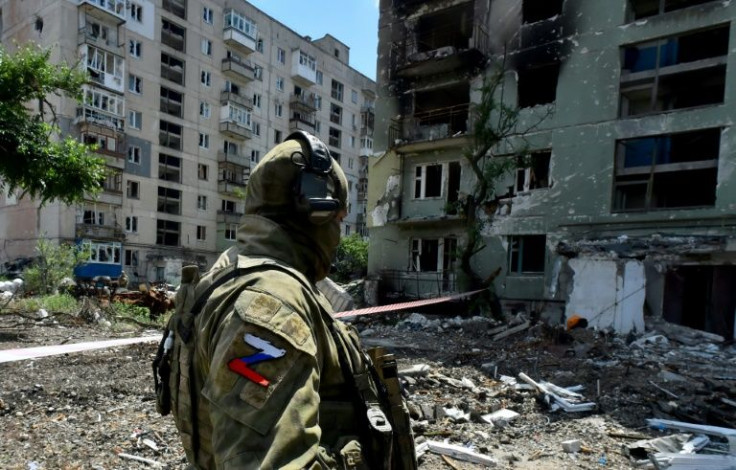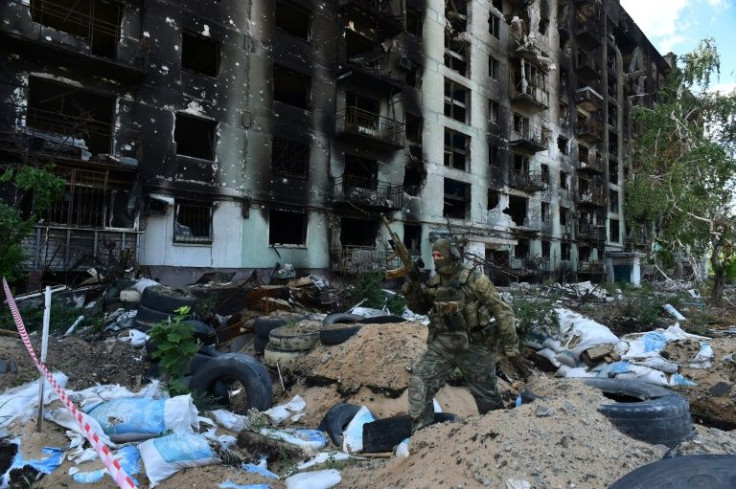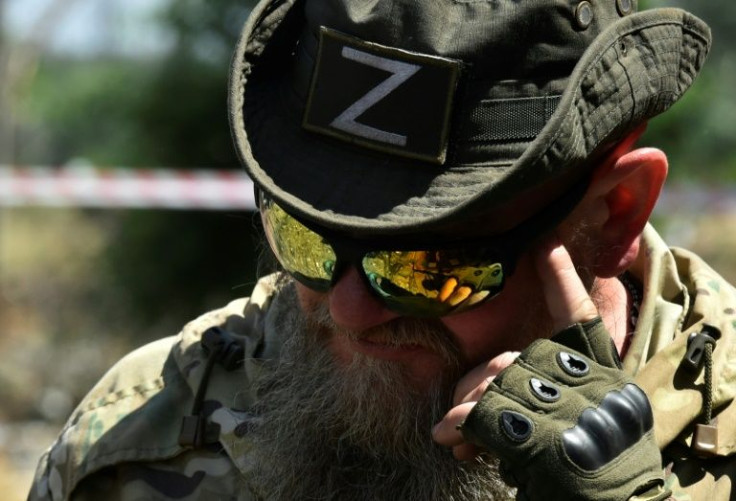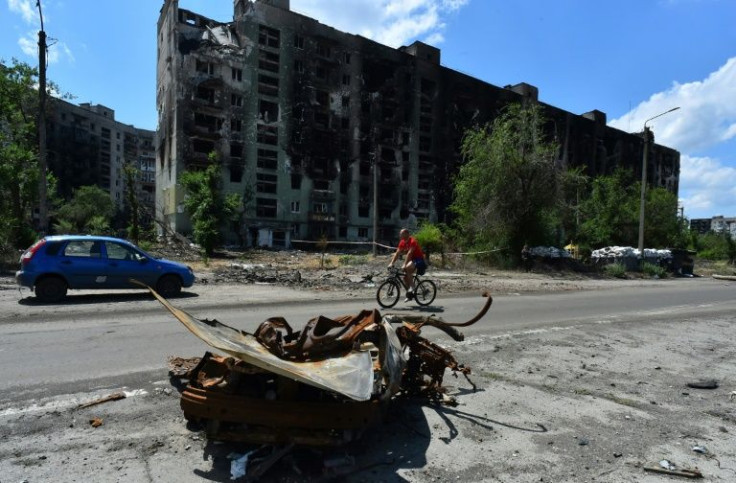Captured By Moscow, Severodonetsk Now Painted In Russian Colours
In Severodonetsk in eastern Ukraine, signs of Russia's takeover are hard to miss.

Large concrete letters spelling out "Severodonetsk" at the city's entrance have been painted in white, blue and red -- the colours of the Russian flag.
A red Soviet flag, with a hammer and sickle, also flies over the monument.

AFP visited the city and its twin town Lysychansk during a press trip this week organised by the Russian army.

Army trucks brandishing the letter Z -- the symbol of Russia's forces fighting in Ukraine -- drive through the Severodonetsk, captured by Moscow in late June after weeks of bloody battles.
Severodonetsk is still scarred by conflict -- apartment blocks charred and bearing gaping holes, piles of rubble that Russian soldiers walk atop.

The streets are almost deserted.
The residents who did not flee live without electricity and regular access to food.
In one area, soldiers hand out drinking water near a parked tank.
Capturing Severodonetsk and Lysychansk allowed Moscow to proclaim full control of the eastern Lugansk region.
Now it aims to take over the whole of the neighbouring Donetsk region.
When launching his Ukraine offensive on February 24, Russian President Vladimir Putin said he aimed to "de-Nazify" and "demilitarise" the country.
Ukraine and the West say that the Kremlin is in fact seeking to realise imperialist ambitions and re-establish its dominance of lands once under Moscow's control.
© Copyright AFP 2024. All rights reserved.







